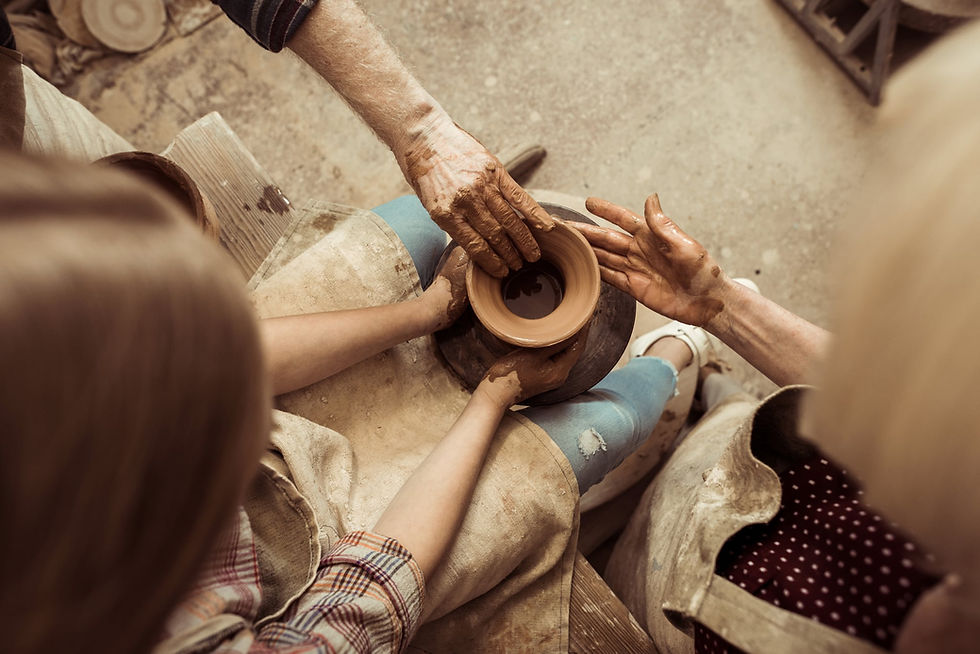Intuition 101: How to Listen to and Trust Your Inner Voice
- Jess Fraser - Life and Transition Coach

- Jun 27, 2024
- 3 min read
Intuition, often described as that gut feeling or inner voice, is an innate ability we all possess. Yet, many of us find ourselves second-guessing it, wondering if we should trust this seemingly inexplicable sense of knowing. In this blog, we'll explore the reasons behind our hesitation, discuss ways to build trust in our intuition, and provide a safe space for readers to embark on this journey of self-discovery and growth.
Understanding Intuition
Intuition is a natural part of our human experience. It's that immediate understanding or knowing something without the need for conscious reasoning. Some might call it a hunch, a gut feeling, or an inner voice. It's deeply rooted in our subconscious, drawing from our experiences, knowledge, and observations, even when we're not actively aware of it.

Why Do We Second-Guess Our Intuition?
Fear of the Unknown: Trusting intuition often means stepping into uncertainty. The lack of concrete evidence can make us hesitant.
Past Experiences: Negative experiences or past mistakes can make us doubt our instincts.
Societal Conditioning: Society often values logic and reason over feelings and intuition, leading us to dismiss our inner voice.
Self-Doubt: Lack of self-confidence can make us question our intuitive insights.
Building Trust in Your Intuition
Building trust in your intuition is a process, much like a marathon rather than a sprint. It requires consistent effort and patience. Here are some steps to help you cultivate and trust your intuition:
Acknowledge Your Intuition: The first step is to recognize and accept that your intuition exists and has value. Pay attention to those gut feelings and inner nudges.
Create a Safe Space: Allow yourself a judgment-free zone to explore your intuitive feelings. Journaling can be a great tool to document your intuitive experiences and reflect on them. You may find this 5 Day Journal Challenge helpful.
Meditation and Mindfulness: These practices help quiet the mind and increase awareness of your inner voice. Regular mindfulness can strengthen your connection to your intuition. You may like this guided meditation which I created: Finding Your Intuition: A Guided Meditation to Buildinging Confidence and Self-Awareness
Trust Small Decisions: Start by trusting your intuition with small decisions. Notice how often your gut feeling leads you in the right direction.
Reflect on Past Experiences: Look back at times when you trusted your intuition. Reflect on the outcomes and how it felt to follow your inner voice.
Seek Balance: While intuition is powerful, balancing it with reason and logic is important. Use your intuitive insights as a guide, but also consider the practical aspects of your decisions.
Finding Evidence of Intuition Working
As you work on trusting your intuition, it’s important to find evidence that it works. Here are some ways to gather this evidence:
Track Your Intuitive Hits: Keep a journal of moments when you trusted your intuition and the results. Over time, you’ll likely see a pattern of success that reinforces your trust.
Notice the Physical Sensations: Pay attention to how your body reacts when you have an intuitive insight. Often, your body can signal a correct intuitive hit through sensations like a sense of peace or excitement.
Feedback from Others: Sometimes, others can validate our intuitive insights. Pay attention to when others acknowledge the accuracy of your intuition.
Consistent Patterns: Look for consistent patterns in your intuitive experiences. Repeated positive outcomes can strengthen your belief in your intuition.
Encouragement for the Journey
Remember, building trust in your intuition is a journey that requires patience and compassion for yourself. It's about progress, not perfection. Here are some encouraging thoughts to keep in mind:
You Are Not Alone: Many people struggle with trusting their intuition. It’s a common part of the human experience.
Growth Takes Time: Like any skill, building intuition takes time and practice. Celebrate small victories along the way.
Trust the Process: Believe that with consistent effort, you will strengthen your intuition and learn to trust it more fully.
Trusting your intuition is a deeply personal and transformative journey. By acknowledging your inner voice, creating a safe space for exploration, and consistently practicing, you can build a strong foundation of trust in your intuition. Remember, this journey is a marathon, not a sprint. With patience and persistence, you will find that your intuition can be a powerful guide in your life.
Embrace the process, trust yourself, and know that every step you take is a step towards greater self-awareness and inner wisdom.

Meet Jess Fraser, a vibrant Life Coach, retreat facilitator, podcast host, blogger, and avid book lover. With a passion for adventure, personal growth and transformation, Jess guides individuals on their journey towards self-discovery and empowerment. Her insightful writings and engaging podcasts inspire others to embrace change and embrace their true selves. If you enjoyed this article and would like to stay connected, join Jess at www.yourinnervitality.com to explore her latest projects, including her empowering guided journal, "Courage to Change Journal." Together, let's continue the journey of self-reflection, growth, and creating a life filled with courage and purpose.





Comments